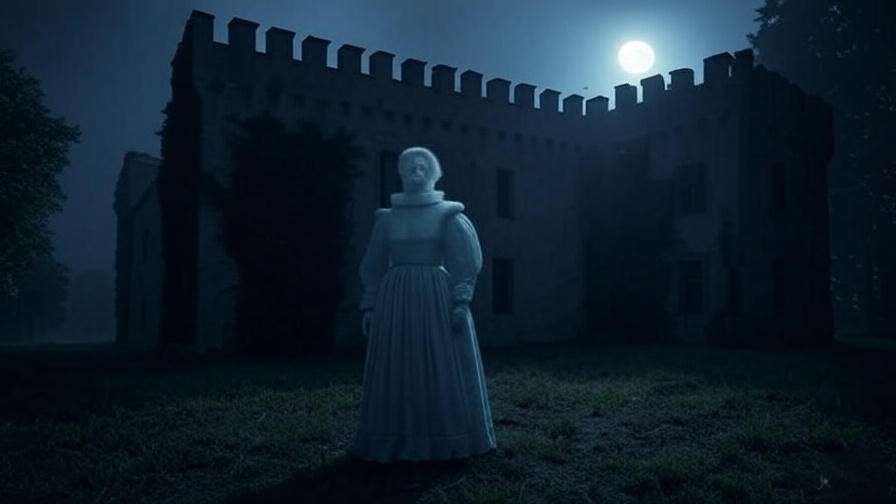Picture the tense air of Elsinore Castle: a hidden figure lurks behind a tapestry, eavesdropping on a heated exchange, only to meet a tragic end with a single thrust of a sword. This is Polonius in Hamlet, Shakespeare’s verbose Lord Chamberlain, whose meddling ways ignite pivotal moments in the play. For students, scholars, and theater enthusiasts searching for insights into Polonius Hamlet, understanding his multifaceted role unlocks deeper appreciation of Shakespeare’s masterpiece. Far from a mere fool, Polonius serves as a foil, a political archetype, and a catalyst for tragedy, shaping Hamlet’s themes of deception, loyalty, and fate. As a Shakespeare scholar with years of analyzing Hamlet in academic and theatrical contexts, I invite you to explore why Polonius’s character is essential to unraveling the play’s complexity and enduring relevance.
Who Is Polonius in Hamlet?
Polonius’s Role and Background
Polonius, the Lord Chamberlain of Denmark, holds a prominent position in King Claudius’s court, advising the crown with a blend of loyalty and self-interest. As the father of Ophelia and Laertes, he is deeply entwined in the personal and political dynamics of Elsinore. His character is defined by verbosity, a penchant for meddling, and an inflated sense of his own wisdom. Polonius believes himself a master strategist, yet his actions often reveal a lack of foresight, making him both a comic and tragic figure. His role as a courtier reflects the complexities of navigating power in a corrupt court, a theme central to Hamlet.
Polonius’s Key Moments in the Play
Polonius appears in several critical scenes that advance Hamlet’s narrative. In Act 1, Scene 3, he delivers his famous advice to Laertes—“To thine own self be true”—a speech that, while memorable, drips with irony given his own duplicity. He manipulates Ophelia, instructing her to reject Hamlet’s advances, believing he protects her while unknowingly setting her on a path to ruin. His decision to spy on Hamlet, culminating in his death behind the arras in Act 3, Scene 4, marks a turning point, escalating the tragedy. These moments establish Polonius as a pivotal figure whose actions ripple across the play.
Expert Insight: Renowned Shakespeare scholar Harold Bloom describes Polonius as “a windbag of conventional wisdom,” yet acknowledges his role in amplifying Hamlet’s wit through contrast. This duality underscores Polonius’s significance beyond mere comic relief.
Polonius as a Foil to Hamlet
Contrasting Wisdom and Foolishness
Polonius’s self-proclaimed wisdom starkly contrasts with Hamlet’s introspective brilliance. Where Hamlet grapples with existential questions—“To be or not to be”—Polonius offers platitudes, such as his advice to Laertes, which sound profound but lack depth. His verbosity, as seen in Act 2, Scene 2, where he rambles about Hamlet’s “madness,” reveals a shallow understanding compared to Hamlet’s calculated feigned insanity. This contrast highlights Hamlet’s intellectual depth, making Polonius a foil who amplifies the prince’s complexity.
Dramatic Function of the Foil
As a foil, Polonius serves to illuminate Hamlet’s character through opposition. His overconfidence and lack of self-awareness—evident when he misreads Hamlet’s cryptic remarks as madness—underscore Hamlet’s sharp wit and deliberate ambiguity. For example, in Act 2, Scene 2, Hamlet mocks Polonius with riddles like “You are a fishmonger,” exposing Polonius’s inability to grasp deeper truths. This dynamic not only entertains but also deepens the audience’s understanding of Hamlet’s psychological and philosophical struggles.
| Trait | Polonius | Hamlet |
|---|---|---|
| Speech Style | Verbose, circuitous | Witty, philosophical |
| Self-Perception | Overconfident, self-important | Self-doubting, introspective |
| Role in Court | Loyal courtier, manipulative | Alienated prince, seeking truth |
Tip: Use this table to compare Polonius and Hamlet when analyzing Hamlet for essays or discussions, as it visually captures their contrasting roles.
Polonius as a Political Archetype
The Courtier in Elizabethan Context
Polonius embodies the Elizabethan courtier, a figure navigating the treacherous waters of political power. In Shakespeare’s time, courtiers like those serving Queen Elizabeth I were expected to balance loyalty, cunning, and self-preservation. Polonius’s eagerness to please Claudius, as seen in his willingness to spy on Hamlet, mirrors the sycophantic behavior of real-life advisors. His character reflects the precarious nature of court life, where ambition often leads to downfall, a theme resonant with Hamlet’s exploration of corruption.
Manipulation and Surveillance
Polonius’s penchant for manipulation and surveillance drives key plot points. He orchestrates schemes, such as using Ophelia to gauge Hamlet’s intentions (Act 2, Scene 1) and hiding behind the arras to eavesdrop (Act 3, Scene 4). These actions align with Hamlet’s broader themes of mistrust and betrayal, as the court becomes a web of spies and secrets. Polonius’s surveillance reflects a proto-modern obsession with control, making his character surprisingly relevant to today’s discussions of privacy and power.
Expert Insight: Historian Alison Weir notes that Elizabethan courts were rife with espionage, drawing parallels to Polonius’s role as a meddler in a distrustful political landscape.
Polonius’s Role in the Tragedy
Catalyst for Key Events
Polonius’s actions propel Hamlet toward its tragic climax. By encouraging Ophelia to reject Hamlet, he exacerbates the prince’s emotional turmoil, contributing to Hamlet’s feigned madness. His decision to spy on Hamlet and Gertrude in Act 3, Scene 4, leads to his accidental death at Hamlet’s hands, a pivotal moment that shifts the play’s trajectory. This act incites Laertes’s quest for revenge and accelerates Claudius’s schemes, cementing Polonius’s role as a catalyst for tragedy.
Symbolism of His Death
Polonius’s death behind the arras is rich with symbolism. The tapestry represents hidden truths and deception, themes central to Hamlet. His demise, mistaken for Claudius, underscores the consequences of meddling in a world of mistrust. It also triggers Ophelia’s descent into madness and Laertes’s vengeful return, amplifying the play’s tragic momentum. A close reading of Act 3, Scene 4, reveals Shakespeare’s genius: “Thou wretched, rash, intruding fool, farewell!” (Hamlet, 3.4.32) captures Hamlet’s contempt, but also his unintended role in escalating the tragedy.
Example: In Act 3, Scene 4, lines 30–33, Hamlet’s impulsive strike through the arras—“How now! A rat? Dead, for a ducat, dead!”—reveals his reckless state, while Polonius’s cry, “O, I am slain!” marks the irreversible shift toward chaos.
Polonius’s Language and Rhetorical Style
The Art of Polonius’s Wordiness
Polonius’s verbose rhetoric is a hallmark of his character. His speech to Laertes in Act 1, Scene 3, spans over 20 lines, filled with maxims like “Neither a borrower nor a lender be.” While these lines are quotable, they reveal Polonius’s tendency to prioritize appearance over substance. His circuitous language, as seen in Act 2, Scene 2, when he discusses Hamlet’s “madness,” frustrates other characters and amuses audiences, showcasing Shakespeare’s skill in blending humor with critique.
Comic Relief or Tragic Flaw?
Polonius’s wordiness serves dual purposes. On one hand, it provides comic relief, as seen in Hamlet’s mocking retorts. On the other, it underscores his tragic flaw: an inability to see beyond his own ego. His long-windedness blinds him to Hamlet’s cunning, leading to his fatal miscalculation behind the arras. Shakespeare uses Polonius’s rhetoric to balance the play’s dark tone while highlighting the dangers of self-delusion.
Sidebar: Polonius’s Most Famous Quotes
- “To thine own self be true” (1.3.78): Ironic, given Polonius’s duplicity.
- “Brevity is the soul of wit” (2.2.90): Humorous, as Polonius is anything but brief.
- “Though this be madness, yet there is method in’t” (2.2.205–206): A rare moment of insight, recognizing Hamlet’s calculated behavior.
Polonius’s Relationships with Other Characters
Polonius and Ophelia
Polonius’s controlling relationship with Ophelia is central to her tragic arc. In Act 1, Scene 3, he orders her to avoid Hamlet, believing his affection is fleeting. This decision, rooted in patriarchal control, isolates Ophelia and contributes to her mental unraveling. Feminist scholars, such as Elaine Showalter, argue that Polonius’s manipulation reflects the gendered constraints of Elizabethan society, positioning Ophelia as a pawn in his political games.
Polonius and Laertes
Polonius’s relationship with Laertes is more permissive, reflecting gendered double standards. His advice to Laertes, while verbose, is well-intentioned, urging caution and virtue. However, his decision to spy on Laertes (Act 2, Scene 1) reveals a lack of trust, paralleling his surveillance of Hamlet. This dynamic sets up Laertes’s later rebellion, as his grief over Polonius’s death fuels his alliance with Claudius.
Polonius and Hamlet
The interactions between Polonius and Hamlet are charged with tension and irony. Hamlet’s mockery, such as calling Polonius a “fishmonger,” exposes Polonius’s inability to match the prince’s wit. Polonius’s attempts to diagnose Hamlet’s “madness” (Act 2, Scene 2) misfire, as he fails to see Hamlet’s strategic feigning. Their dynamic underscores Hamlet’s themes of deception and misunderstanding, with Polonius’s blindness driving the plot toward tragedy.
Expert Insight: Feminist critic Elaine Showalter notes that Polonius’s control over Ophelia “exemplifies the patriarchal structures that constrain female agency,” adding depth to his role in her downfall.
Polonius in Performance: Theatrical Interpretations
Portrayals of Polonius on Stage and Screen
Polonius’s character offers actors a unique challenge: balancing his comedic verbosity with his tragic flaws. Notable performances, such as Richard Briers’s in Kenneth Branagh’s 1996 film adaptation of Hamlet, emphasize Polonius’s pomposity, delivering his lines with a self-important flourish that elicits laughter. In contrast, Ian Holm’s portrayal in Franco Zeffirelli’s 1990 film leans into Polonius’s cunning, presenting him as a more calculated political operative. The Royal Shakespeare Company (RSC) productions often highlight Polonius’s duality, with actors like Oliver Ford Davies (2008) blending humor with pathos to underscore his role in the tragedy. These varied interpretations demonstrate Polonius’s versatility, allowing performers to explore the fine line between fool and schemer.
Directorial Choices and Their Impact
Directorial decisions significantly shape Polonius’s portrayal. In modern stagings, directors often use costume to signal his status: elaborate robes emphasize his courtly role, while disheveled attire in later scenes can hint at his unraveling influence. Staging choices, such as placing Polonius in shadowy corners during spying scenes, reinforce themes of surveillance. In Gregory Doran’s 2009 RSC production, David Tennant’s Hamlet taunted a visibly flustered Polonius, amplifying the comedic tension before the tragic arras scene. Directors also manipulate pacing—slowing Polonius’s long-winded speeches to highlight his absurdity or quickening them to suggest urgency. These choices shape how audiences perceive Polonius, either as a laughable relic or a dangerous meddler.
Example: In Branagh’s 1996 film, Polonius’s death is staged with dramatic irony: the camera lingers on the arras as Hamlet strikes, emphasizing the hidden nature of Polonius’s schemes. Reviews from The Guardian praised this choice for amplifying the scene’s emotional weight.
Why Polonius Matters to Modern Audiences
Relevance to Contemporary Issues
Polonius’s character resonates with modern audiences due to his flaws and motivations. His tendency to prioritize self-interest over genuine wisdom mirrors contemporary political figures who rely on rhetoric over substance. His surveillance tactics—spying on Hamlet and Laertes—echo today’s debates about privacy, surveillance, and data ethics. In an era of political spin and misinformation, Polonius’s manipulation of truth feels strikingly familiar. By examining his role, readers can draw parallels to modern leaders who overestimate their cunning, only to face unintended consequences.
Lessons for Students and Scholars
Studying Polonius offers valuable insights for students and scholars analyzing Hamlet. His character illuminates Shakespeare’s skill in crafting complex figures who serve multiple dramatic functions: comic relief, political commentary, and tragic catalyst. For students writing essays, Polonius provides a lens to explore themes like deception, power, and family dynamics. Scholars can delve into his historical context, comparing him to Elizabethan courtiers or analyzing his rhetorical style through a linguistic lens. To aid analysis, consider these tips:
- Focus on Context: Examine Polonius’s actions within the political and familial dynamics of Elsinore.
- Analyze Language: Break down his speeches for irony and subtext, especially in Act 1, Scene 3.
- Compare Productions: Watch different Hamlet adaptations to see how Polonius’s portrayal shifts.
Tip: Download our free PDF checklist, “How to Analyze Shakespearean Characters,” tailored to Polonius, available on the William Shakespeare Insights blog. It includes step-by-step prompts for essays and discussions.
Common Misconceptions About Polonius
Is Polonius Just Comic Relief?
A common misconception is that Polonius serves only as comic relief, a bumbling fool to lighten Hamlet’s dark tone. While his verbosity and missteps—like misinterpreting Hamlet’s “madness”—elicit laughs, Polonius is far more complex. His political maneuvering, such as aligning with Claudius to secure his status, reveals a cunning side. His death, far from trivial, triggers the play’s climactic events. By reducing Polonius to a caricature, readers miss his role as a mirror to the court’s corruption and Hamlet’s brilliance.
Was Polonius a Good Father?
Debates about Polonius’s parenting often polarize audiences. Some view his advice to Laertes as heartfelt, reflecting genuine care. Others argue his controlling nature—especially toward Ophelia—reveals selfishness. Textual evidence suggests a mixed legacy: his advice to Laertes is well-meaning but hypocritical, given his own deceitful actions. His manipulation of Ophelia, urging her to reject Hamlet, prioritizes political gain over her happiness, contributing to her tragedy. A nuanced view acknowledges Polonius’s intentions but critiques his execution, highlighting the patriarchal constraints of his era.
FAQ Section
- Why does Polonius spy on Hamlet?
Polonius spies to curry favor with Claudius and protect his family’s status, believing Hamlet’s “madness” poses a threat. His actions reflect the court’s culture of mistrust. - How does Polonius’s death affect the play?
His death escalates the conflict, prompting Laertes’s revenge and Ophelia’s madness, driving the plot toward its tragic climax. - Is Polonius’s advice to Laertes sincere?
While sincere, his advice is steeped in irony, as Polonius fails to embody the virtues he preaches, such as honesty and brevity. - Why is Polonius called a “fishmonger” by Hamlet?
Hamlet’s insult likely mocks Polonius’s low cunning and meddling, possibly alluding to his role in “selling” Ophelia’s affections. - How do modern productions portray Polonius?
Modern stagings vary, with some emphasizing his comedic verbosity and others his political scheming, reflecting directors’ interpretations of his role.
Polonius in Hamlet is no mere fool; he is a multifaceted character whose verbosity, political scheming, and tragic end illuminate Shakespeare’s exploration of deception, power, and fate. As a foil to Hamlet, a political archetype, and a catalyst for tragedy, Polonius enriches the play’s thematic depth. His relationships with Ophelia, Laertes, and Hamlet reveal the personal toll of his actions, while his rhetorical style balances humor and hubris. For modern audiences, Polonius’s flaws resonate with contemporary issues of surveillance and self-delusion, making him a timeless figure. Revisit Hamlet with fresh eyes, focusing on Polonius’s contributions to its brilliance, and share your insights in the comments or on social media with #ShakespeareInsights. As a Shakespeare scholar, I encourage you to explore more resources on our William Shakespeare Insights blog to deepen your understanding of this iconic tragedy.













